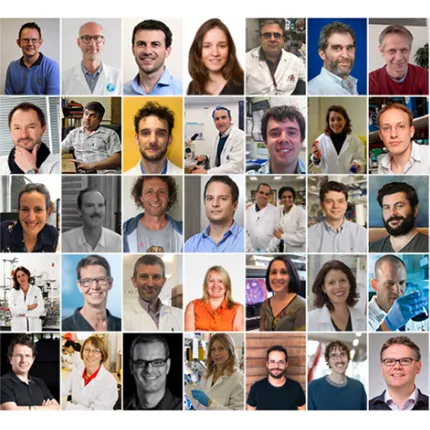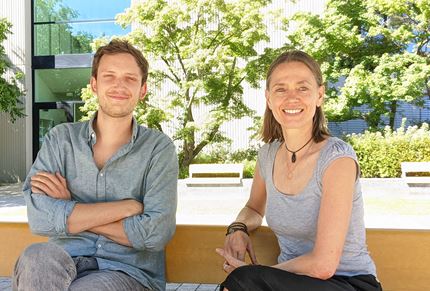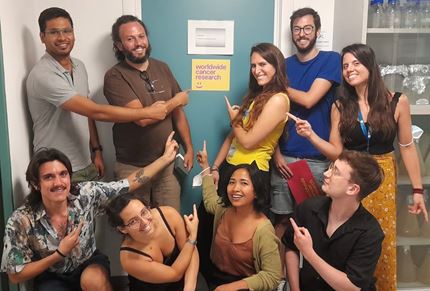Uncovering how the tumour microenvironment can make cancer cells more aggressive

Project aim
Professor Sastre Garzón and his team are studying how oral cancer cells gain the ability to spread into other tissues. They hope to find ways to prevent metastasis or treat cancer that has already spread.
Hope for the future
Most cancer deaths are ultimately caused my metastasis, where cells spread from the original tumour to other places around the body. Cancer cells often change and gain the ability to spread, and they can be influenced to do so by the environment around them in the tumour.
Professor Sastre Garzón and his team are studying how the tumour microenvironment influences oral cancer cells to change, giving them the ability to spread to other places in the body. They hope that uncovering this process will reveal new ways to treat cells that have already spread, or even prevent it happening.
Image: Professor Leandro Sastre Garzón (right) and Ana Sastre Perona (left)
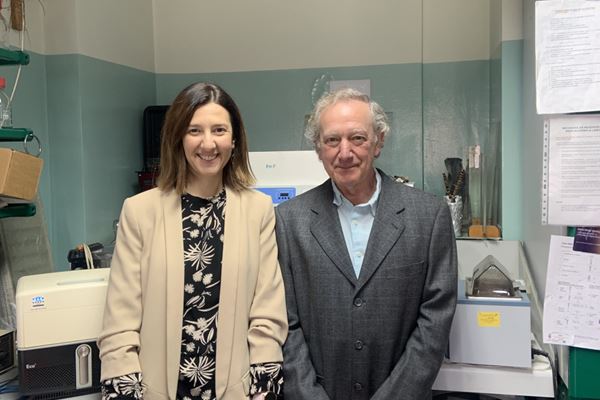
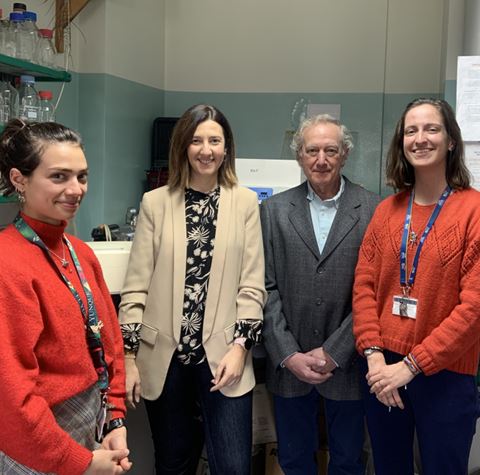
Meet the scientist
Professor Sastre Garzón started working in cancer hoping to apply his experience in other areas of biology to a big problem for society – he is supported by his wife and daughter, both of whom are also cancer researchers! Outside of the lab, he enjoys reading and learning about history, and has one dog, two cats, and a variety of plants at home.
The science
Tumours are not just a bundle of identical cancer cells; in fact, they are complex ecosystems made up of cancer cells and many other types of cell. Together they form something called a tumour microenvironment. In a similar way to how soil nurtures plants to grow, the tumour microenvironment helps the tumour to grow and spread.
In oral cancer, a type of head and neck cancer, the main cells in the tumour microenvironment that influence this change are cancer-associated fibroblasts (CAFs). They disrupt the cellular machinery that reads instructions off DNA. This causes the cancer cells to change and gives them the ability to spread into surrounding tissue through the ‘soil’ and colonise other areas.
Professor Sastre Garzón and his team want to understand how the CAFs communicate with the cancer cells to cause that change. They hope that unpicking this process will reveal new ways to prevent this spread happening or destroy the cells that have already spread.
I believe that science is a major driver of the advance of our society. I think this is the case in many fields and also in biomedical sciences. Discovery research is basic in this advance as shown in many social and medical improvements that followed discovery research findings.Professor Leandro Sastre Garzón
Become a Curestarter and help us fund the next pioneering research project.
Our research projects wouldn’t be possible without the funds we receive from people like you. £37 pays for an hour of research and every hour brings us closer to new cures
Support us
